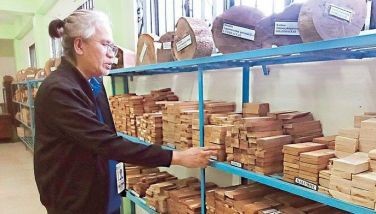Crisis summit set for Nov. 15
WASHINGTON – World leaders will meet Nov. 15 in Washington to address the global financial crisis – the first in a series of summits to mitigate what economists predict could be a long and deep downturn.
In making the announcement, White House spokeswoman Dana Perino said the first meeting will focus on the underlying causes of the financial crisis, the global response and the principles that should guide any reforms.
The summit will bring together leaders of Japan, Britain, France, Germany, Italy, Canada and the United States, the European Union, China, Brazil, India, Russia, South Korea and other major economies. She said the White House would seek input from the winner of the US presidential election who will take office on Jan. 20.
Perino said countries would come to the summit with different approaches about what is needed to fix the system. “I don’t believe that you’ll have any details coming out of this meeting in terms of things that everyone agrees to at the first meeting,” she said.
The collapse of the housing market in the US led to the tanking of the broader financial system, prompting a credit freeze in this country and around the globe. So far, though, a string of drastic actions by the Federal Reserve and the Bush administration has yet to turn around the US economy. Businesses are reluctant to hire and boost capital investments, consumers have hunkered down, and all the economy’s problems are feeding off each other.
This will be the first in a series of summits to bring the leaders together. At the first meeting, working groups will be set up to develop recommendations to be considered by leaders in subsequent summits. The White House will host a dinner on the eve of the summit. The location of the meeting, however, has not yet been announced.
US President George W. Bush, French President Nicolas Sarkozy and European Commission President Jose Manuel Barroso, who met at the Camp David presidential retreat last week, announced the series of summits, saying the international community needs to work together to address the credit crisis that has shaken markets the world over.
Bush has backed the steps that European nations have taken to fix the financial markets and is willing to listen to a range of ideas from both developed and developing nations. But he hasn’t signed on to the more ambitious, broad-stroke reforms that some European leaders have in mind to avoid a repeat of the market crisis that rippled around the globe.
At Camp David, Bush warned that any international effort should preserve what he calls democratic capitalism – free markets, free enterprise, and free trade.
Sarkozy has a slightly different view. He has said capitalism has to be re-invented to include a strong regulatory system.
Perino said not to expect the summit to yield decisions on new policy or regulation. The task of putting “meat on the bones” will be up to financial experts in the countries after the world leaders review the causes of the crisis, the response so far, and the principles of reform that should be adopted. – AP
- Latest
- Trending






























